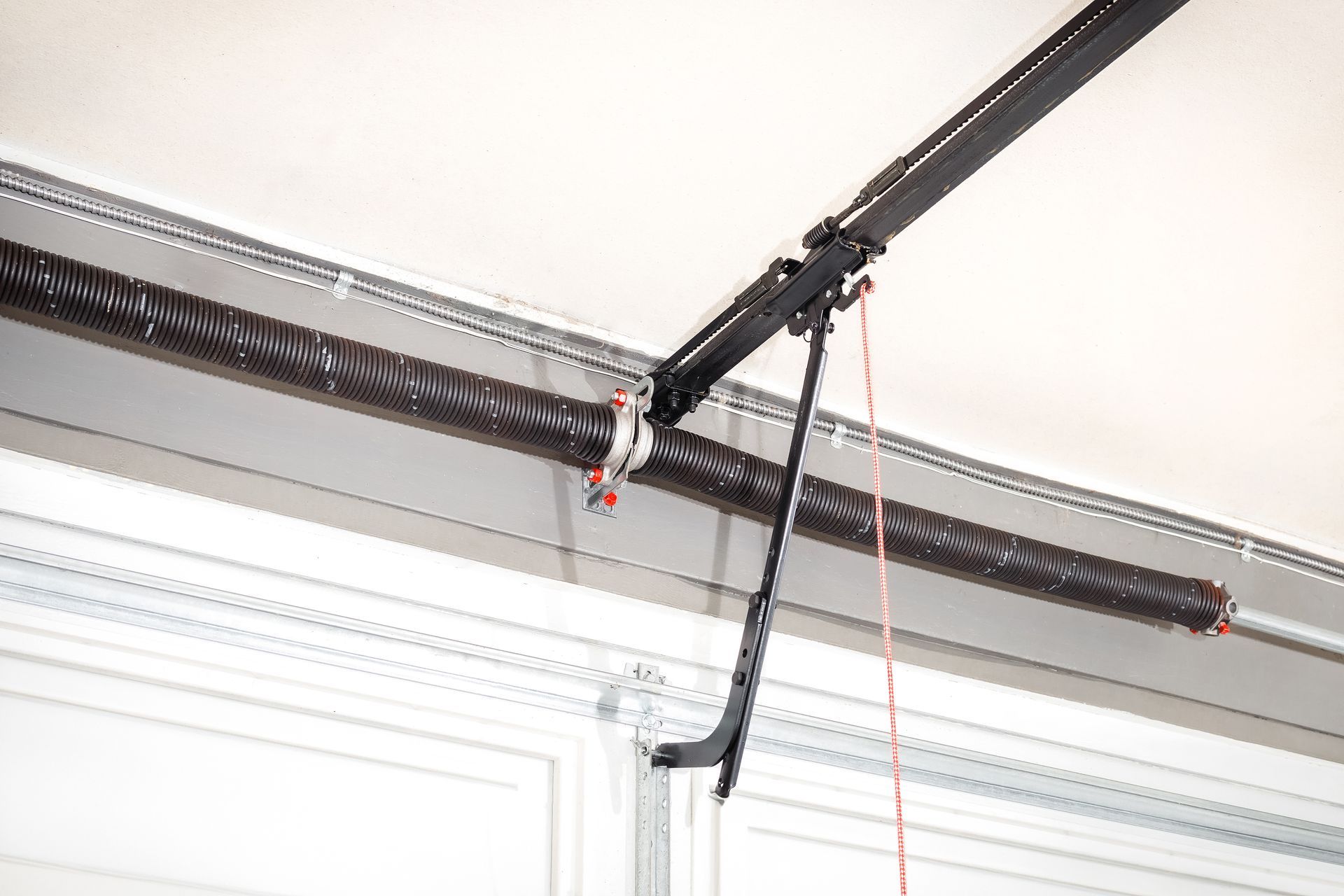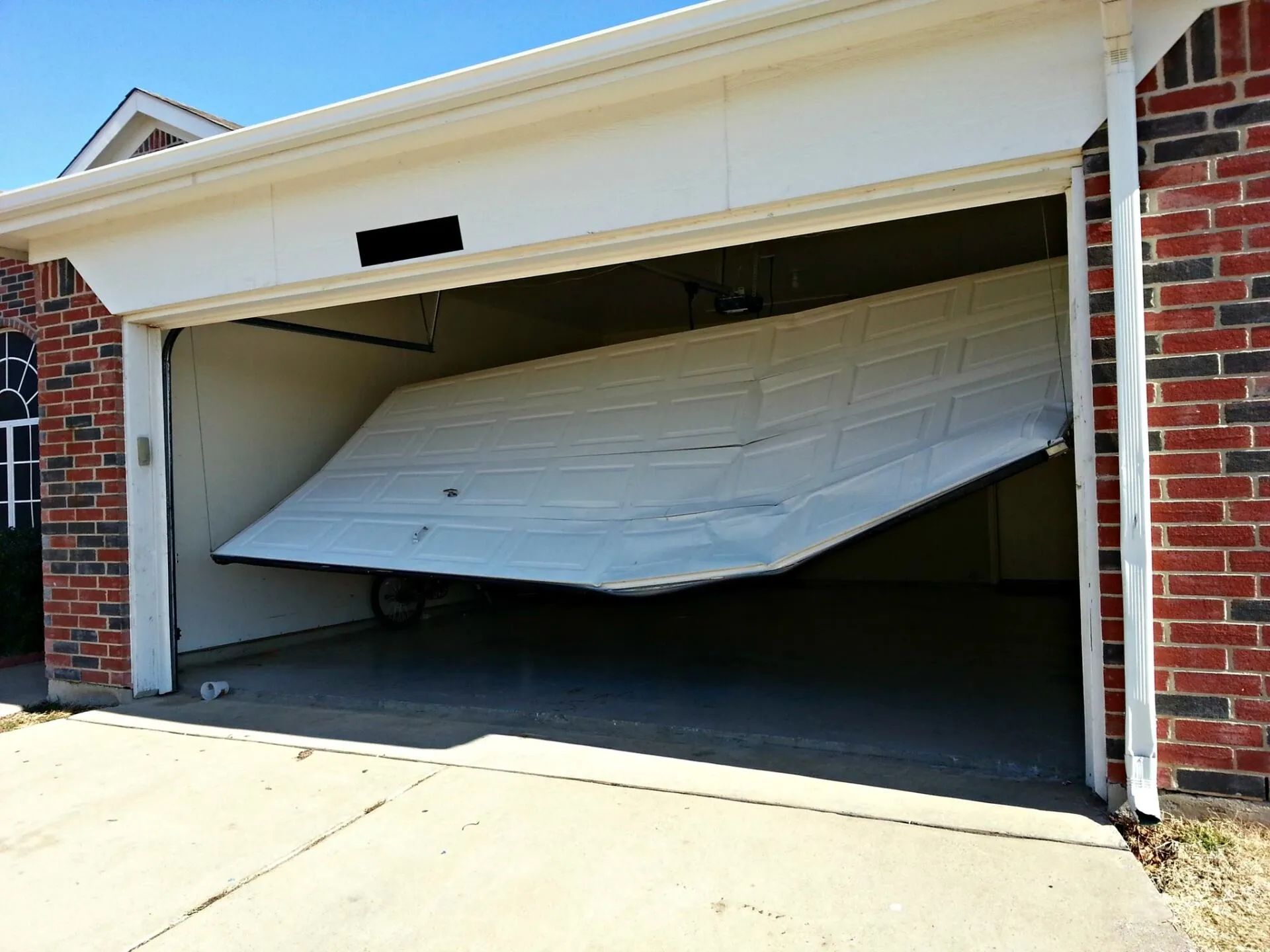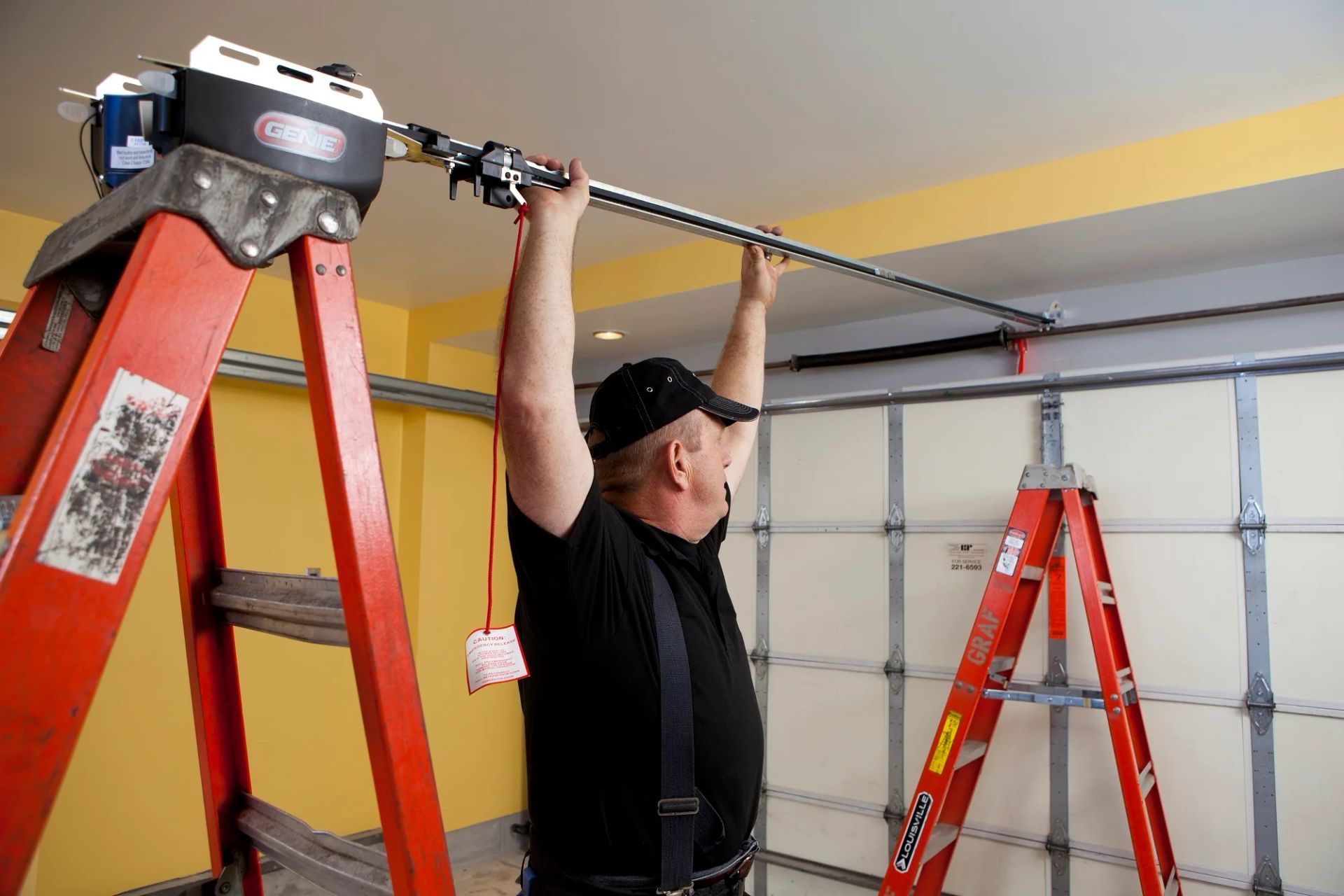How to Troubleshoot a Noisy Garage Door

A noisy garage door can be frustrating and disruptive, often signaling underlying issues that need attention. Whether it's a grinding, squeaking, or rattling sound, identifying the cause is crucial for effective repairs. Homeowners in Buckeye, AZ, experiencing persistent garage door noise should consider professional assistance to prevent costly damage. Regular maintenance and timely fixes can keep the system running smoothly. If you’re searching for garage door repair Buckeye AZ, this guide will walk you through troubleshooting a noisy garage door and determining when professional help is necessary.
Identifying the Type of Noise
1. Grinding Noise
If your garage door produces a grinding sound, it could mean that the rollers or tracks are worn out or misaligned. Metal-on-metal friction usually signals the need for lubrication or replacement. If left unaddressed, misaligned tracks can cause excessive wear on the rollers and increase the risk of derailment. Regularly inspecting the rollers and tracks for visible wear and ensuring they are properly aligned can prevent further complications.
2. Squeaking Noise
A high-pitched squeak often points to dry or rusty hinges, rollers, or springs. Proper lubrication can usually resolve this issue. However, if lubrication does not eliminate the noise, it may indicate that the components are excessively worn and need replacement. Using a silicone-based lubricant on hinges and springs every few months can help maintain smooth operation and prevent early deterioration.
3. Rattling Noise
Loose nuts, bolts, or other hardware can cause a rattling sound. Regularly inspecting and tightening these components can prevent further noise and potential damage. Rattling may also be a sign that the garage door opener is vibrating excessively, which could be due to a loose mounting bracket or misalignment. Ensuring all hardware is secure and the opener is properly attached to the ceiling can help minimize these vibrations.
4. Banging or Popping Noise
This could indicate a torsion spring issue, often caused by sudden tension release. Springs under high tension are dangerous, so professional assistance is recommended for repairs. The popping noise may also result from sections of the door panels shifting due to expansion and contraction with temperature changes. If the issue is related to springs, avoiding DIY fixes and contacting a technician is crucial for safety.
Lubricating Moving Parts
1. Use Silicone-Based Lubricant
Avoid using WD-40, as it is a degreaser and does not provide long-lasting lubrication. Instead, opt for a silicone-based spray or white lithium grease. These lubricants provide a protective barrier against rust and corrosion while ensuring smooth movement of components. Applying the lubricant evenly in small amounts prevents excess buildup, which can attract dirt and grime.
2. Lubricate Hinges
Apply lubricant to all moving hinges to minimize squeaking and ensure smooth operation. Hinges play a crucial role in allowing the door panels to fold and unfold properly, so keeping them lubricated can prevent unnecessary strain on the opener. If hinges are excessively worn or rusted, replacing them may be necessary to restore optimal function.
3. Grease the Rollers
If your garage door has metal rollers, lubricating them will reduce friction. Nylon rollers should not be lubricated, but their bearings can be. Well-lubricated rollers allow the door to glide effortlessly along the tracks, reducing noise and wear. Regularly checking the condition of the rollers and ensuring they are free of debris will help prolong their lifespan. Aside from a noisy garage door, does it also have troubles opening properly? Read “When Your Garage Door Won’t Open: Garage Door Repair Tips.”
4. Spray the Springs
Torsion and extension springs should be lubricated lightly to prevent corrosion and reduce noise. A small amount of lubricant applied along the length of the spring helps maintain flexibility and reduces strain on the garage door opener. Springs that appear frayed or worn should be inspected by a professional, as they can break under high tension.
5. Coat the Tracks Sparingly
While tracks should remain clean, a small amount of lubricant at the contact points can enhance movement. Excess lubrication on the tracks can cause dirt accumulation, which may lead to further operational issues. Wiping the tracks with a clean cloth before applying a minimal amount of lubricant can help maintain a balance between smooth movement and cleanliness.
Tightening Loose Hardware
1. Inspect Bolts and Screws
Loose bolts on hinges, brackets, and roller mounts can cause rattling. Use a wrench to tighten them securely. If bolts and screws continue to loosen over time, applying a thread-locking adhesive can help keep them in place. Checking these components at least once every six months can prevent minor issues from escalating.
2. Check Track Alignment
Misaligned tracks can create friction and noise. Ensure they are properly aligned and adjust them if necessary. Tracks that are bent or misaligned can cause the door to move unevenly, leading to premature wear on rollers and the opener. Using a level to confirm proper alignment and making small adjustments can help maintain smooth operation.
3. Secure the Garage Door Opener Chain
If the chain on your garage door opener is loose, it can create a slapping sound. Tighten it according to the manufacturer’s instructions. A properly tensioned chain reduces strain on the motor and prevents unnecessary vibrations. If the chain appears overly worn or rusted, replacing it can improve the overall performance of the opener.
4. Examine the Mounting Brackets
Ensure that the brackets holding the tracks and opener are firmly secured to prevent excessive vibrations. Loose mounting brackets can lead to instability and additional noise during operation. Tightening these brackets and ensuring they are attached to solid supports can help maintain long-term stability.
5. Test Door Balance
If the garage door is unbalanced, it may strain the hardware and create noise. Conduct a balance test by manually lifting the door halfway and ensuring it stays in place. If the door moves up or down on its own, the springs may need adjustment. A well-balanced door reduces stress on the opener and ensures smooth operation.
Replacing Worn-Out Rollers
1. Steel vs. Nylon Rollers
Steel rollers are durable but tend to be noisy, while nylon rollers offer quieter performance with less maintenance. Nylon rollers with sealed bearings provide the best long-term solution for reducing noise and improving movement. Investing in high-quality rollers can enhance the door’s performance and lifespan.
2. Signs of Roller Wear
If rollers appear cracked, chipped or do not spin freely, they should be replaced. Worn-out rollers can cause jerky movements, putting additional strain on the opener. Inspecting rollers regularly and replacing damaged ones promptly can prevent larger mechanical failures.
3. Upgrading to Sealed Bearing Rollers
Sealed-bearing nylon rollers last longer and require minimal maintenance, making them a worthwhile investment. These rollers resist dirt and debris, ensuring smoother operation over time. Their durability makes them an excellent choice for high-traffic garage doors.
4. Replacing the Rollers Safely
If replacing rollers, ensure the garage door is closed and the power to the opener is disconnected. Use proper tools and follow safety precautions, or consult a professional for assistance. Mishandling rollers can lead to misalignment and additional problems, so careful installation is crucial.
Conclusion
A noisy garage door can be more than just an annoyance—it often signals an issue that needs attention. Regular maintenance, such as lubricating moving parts, tightening hardware, and replacing worn-out rollers, can significantly reduce noise and extend the life of your garage door. If troubleshooting does not resolve the problem, seeking professional help is the best course of action. A well-maintained garage door ensures smooth and quiet operation, preventing costly repairs in the long run.
Tired of dealing with a noisy garage door? Let
JCTZ Garage Doors handle the problem for you. Our team specializes in expert garage door repair, ensuring smooth and silent operation. From worn-out rollers to loose hardware, we provide reliable solutions tailored to your needs. Don’t let a noisy garage door disrupt your peace—contact JCTZ Garage Doors today for fast, professional service.
Schedule your repair now and experience the difference of a well-maintained garage door!
Seamless Solutions for Every Garage Door Need
At JCTZ Garage Doors, we deliver precision, reliability, and innovation. From expert repairs to custom installations, our services ensure your garage door functions flawlessly, keeping your home secure and stylish. Experience effortless operation with cutting-edge technology and unmatched craftsmanship, tailored just for you.
Garage Door Repair
Our skilled technicians swiftly diagnose and fix any garage door issue, from faulty tracks to damaged panels, ensuring your door operates smoothly and safely.
Garage Door Maintenance
Preventive care is key to longevity. Our maintenance service keeps your garage door in top condition, identifying and addressing potential problems before they escalate.
Garage Door Installation
Trust us for seamless installation of high-quality garage doors. Our expert team customizes solutions to match your style and security requirements.
Garage Door Opener Installation
Upgrade your garage with a new opener for convenience and security. Our installation service ensures seamless integration and reliable performance.
Garage Opener Repair
If your opener is malfunctioning, we provide efficient repairs to restore effortless door operation, ensuring convenience and security.
Garage Door Spring Repair
We specialize in garage spring repair, ensuring your door operates safely and efficiently. Our experts replace or adjust springs to balance the door's weight effectively.
The Valleys Top Garage Door Repair Company
JCTZ GARAGE DOORS PROUDLY Serving Buckeye, AZ, and Surrounding Phoenix Area
Our range of garage door services caters to all Buckeye, AZ, residents and the surrounding Phoenix area. We are committed to delivering top-quality service and ensuring customer satisfaction in every job we undertake. Whether you need a minor repair or a complete garage door replacement, you can trust JCTZ Garage Doors to provide the best solutions for your needs.
Contact Us Today 623-335-3699
For reliable garage door repair, maintenance, and installation services in Buckeye, AZ, and the surrounding Phoenix area, contact JCTZ Garage Doors. Call us today at 623-335-3699 to schedule an appointment or to learn more about our services. Let us help you keep your garage door in perfect working condition!
Maricopa County
- Palm Valley
- Wickenburg
- Youngtown
- Litchfield Park
- Carefree
- Cave Creek
- Gila Bend
- Paradise Valley
- New River
- Anthem
- Sun City
- Sun City West
- Sun Lakes
- Rio Verde
- Tonopah
- Ajo
Copyright © JCTZ Garage Doors - Site design and SEO provided by ALKOR SEO







